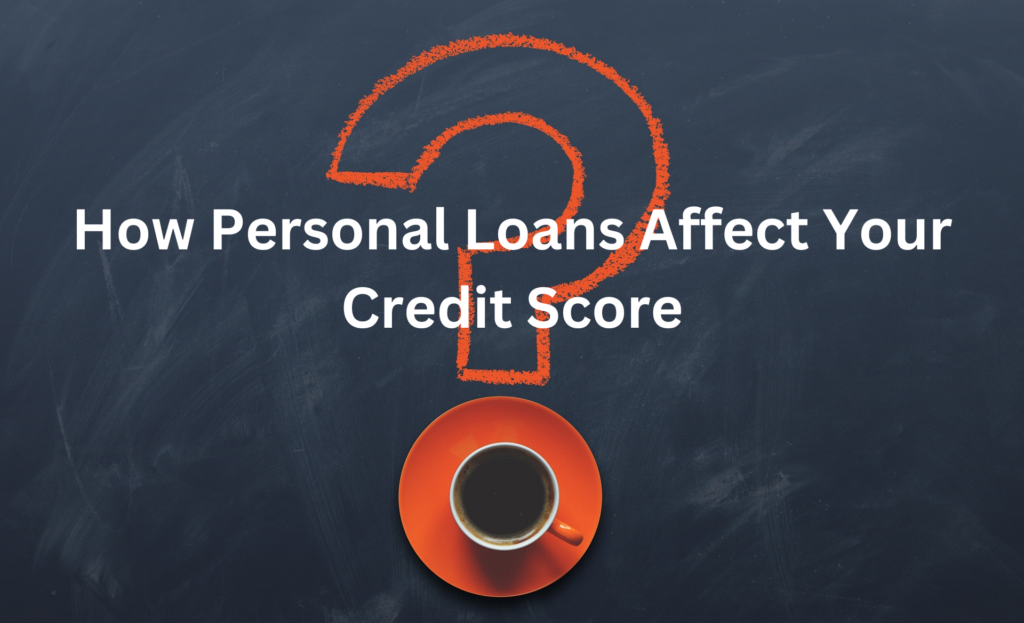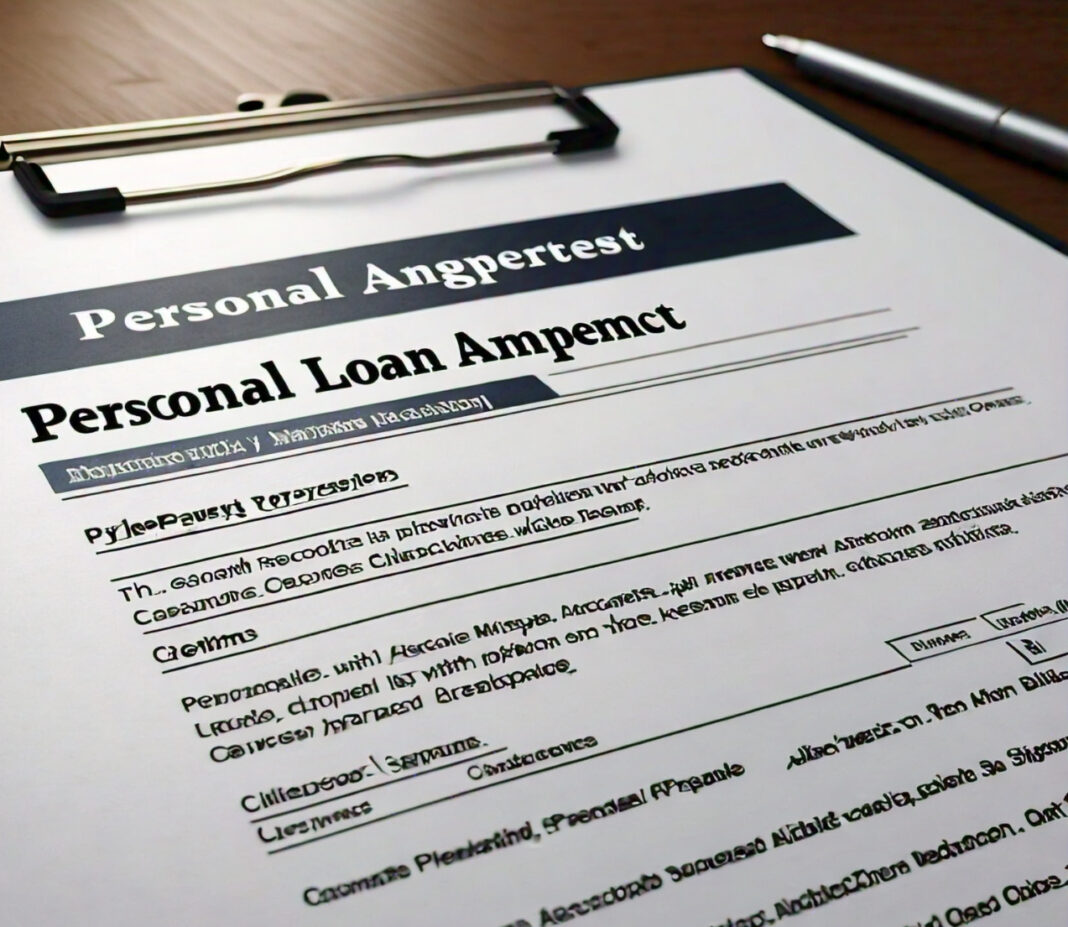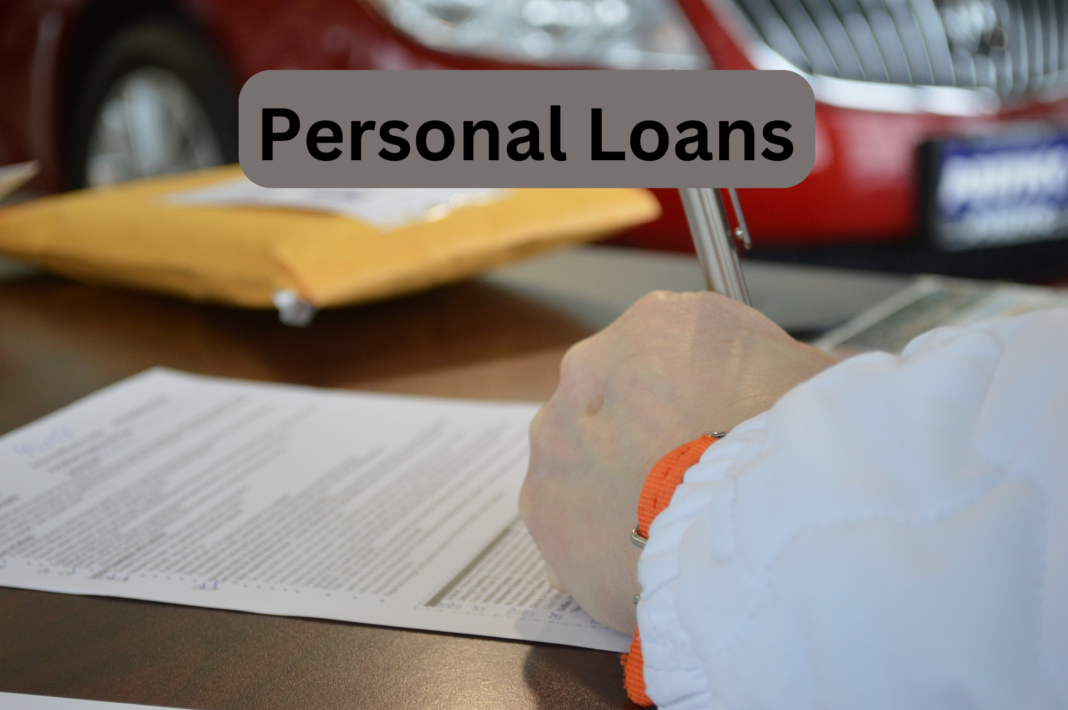Today’s most common financial instruments are personal loans, which are employed for anything from handling expenses and debt consolidation to financing significant purchases. Accordingly, as helpful as these kinds of loans can be in bringing much-needed flexibility into one’s finances, they impact one of the most important financial metrics: your credit score. Understanding how these personal loans affect your credit is an excellent way to make significant decisions concerning borrowing and managing your financial health.

The rest of this article discusses several ways personal loans can impact your credit score, from the first application to the long-term repayment. We examine the positive and negative ways these financial instruments can shape creditworthiness. Whether you’re considering a personal loan or already have one, ensure this information prepares you for sound choices that benefit your financial future.
What is a Personal Loan?
Needing to explain the impact on credit scores presupposes an understanding of what a personal loan is.
A personal loan is an unsecured loan from a bank, credit union, or even an online lender. Personal loans are based on your creditworthiness rather than collateral, as is often the case with secured loans in the form of mortgages or auto loans. They typically come with fixed rates and repayment terms ranging from one to seven years.
People use personal loans for various purposes, including:
Debt consolidation
Personal loans may be utilized to fund:
- Home improvements
- Major purchases
- Wedding expenses
- Medical bills
- Unexpected costs
Since we now have a clear understanding of personal loans, let’s discuss how they affect your credit score.
How Credit Scores Work
Understanding how personal loans affect your credit score starts with a basic overview of how credit scores generally work. While there are many different credit scoring models, the most commonly used model is the FICO score. FICO scores range from 300 to 850, and consider these five factors: i
- Payment history: It accounts for 35% of your credit score.
- Credit utilization: It constitutes 30%.
- Length of credit history: It counts for 15%.
- Credit mix: The credit mix makes up 10%.
- New credit: It also comprises 10%.
Personal loans will impact each of the components listed above differently. Let’s find out exactly how they will affect each one.
Application Process and Credit Score
Actually, how a personal loan impacts your credit score starts well before you get the money. Here is what happens when you apply:
Hard Inquiries
When you apply for a personal loan, the lender does a hard inquiry on your credit report. This is a formal request to check your credit history, and it becomes a record on your credit report. Hard inquiries do lower credit scores temporarily by a small margin, usually around 5-10 points.
Key things to know about hard inquiries:
- They stay on your credit report for two years
- The impact on your score reduces over time
- Multiple credit applications of the same type made in a short period of time, usually between 14 and 45 days, are often counted as a single inquiry by the scoring models.
Tip for reducing impact:
If you are rate shopping and looking for the best loan terms, make all your applications within a small window. Theoretically, this increases the chances that credit-scoring models will identify that you are just rate shopping and not attempting to open multiple new lines of credit.
Immediate Consequences of Obtaining a Personal Loan
Once you get approved for a personal loan and the funds, several things happen that may affect your credit score:
New Credit Account
A new personal loan will also appear as a new account in your credit report. The “new credit” component comprises 10% of your FICO score. When new accounts are opened, your score may temporarily decrease, but this usually doesn’t last very long if the account is managed responsibly.
Changes in Credit Mix
Personal loans can help your “credit mix,” which makes up 10% of your FICO score. Having multiple types of credit-in other words, both revolving accounts and installment loans-means a higher score. If you only had credit cards, adding a personal loan diversifies your credit mix and may raise your score.
Potential Decrease in Credit Utilization
If you use a personal loan to pay off credit card debt, you may experience a significant positive impact on your credit utilization ratio. Credit utilization comprises 30% of your FICO credit score, thus the most important factor. Paying off revolving credit with an installment loan will probably lower your credit utilization, which can significantly improve your credit score.
Long-term Impact of Personal Loans on Credit Scores
As you continue to have and pay your loan over time, the dynamics of how it impacts credit scoring shifts. Here are the long-term effects to consider:
Payment History
Your payment history is the biggest determinant of your credit score, accounting for 35% of the FICO calculation. Over time, on-time payments on a personal loan have a great and sometimes substantial impact on your credit score.
Tips to maintain a positive payment history:
- Set up automatic payments so that you will never be late for any due date.
- If you cannot pay your bills, contact your lender immediately so whatever arrangement can be made.
Length of Credit History
This adds to the length of your credit history, which comprises 15% of your FICO score. The longer your history, generally, the better it is for your score. Another point that might be a consideration if you can pay off a personal loan early is that closing older accounts can shorten your credit history.
Debt-to-Income Ratio
Although it is not directly a factor affecting your credit score, your debt-to-income ratio is a common factor that almost all lenders consider when evaluating a new credit application. That includes personal loans, which increase your total debt, possibly changing your debt-to-income ratio. Keeping a personal loan responsibly and reducing it over time will let you retain an optimal DTI ratio.
Specific Scenarios and Their Credit Score Impact
Let’s look at a few common personal loan scenarios and how they might impact your credit score:
Consolidating Debt with a Personal Loan
Lots of borrowers take out personal loans to consolidate high-interest credit card debt. This can have several positive impacts on your credit score:
- Lower credit utilization: If you’re paying off credit card debt with the loan, you are also lowering your credit utilization ratio, which can give your score a quick boost.
- Improved payment history: One who has been having difficulty keeping track of all his payments might find it much more manageable with only one loan; hence, he may be able to maintain a good repayment history.
- Better credit mix: Taking out an installment loan will add some variety to the person’s existing credit mix.
Just be careful: If you keep using your credit cards after you consolidate, you could owe more overall, hurting your credit score and financial health.
Taking Out a Personal Loan for a Major Purchase
Using a personal loan to fund a big expense – home improvements or a wedding, for example – can have several effects on your credit:
- New credit impact: You’ll immediately incur a small, short-term ding from the hard inquiry and adding a new account.
- Payment history impact over time: Timely payments during the loan term will contribute positively over time.
- Additional total debt: Your level of indebtedness will increase, impacting your DTI ratio.
Paying Off a Personal Loan Early
While it doesn’t seem to make sense, paying off a personal loan early can sometimes hurt your credit score a bit. Here’s why that happens:
- Lower credit mix: If that personal loan was your only installment loan, repaying it reduces your credit mix.
- Average account age: Closing the account could lower the average age of your credit accounts.
These are usually minor and temporary effects. Often, the benefits of reducing your debt load outweigh any temporary negative impact on your credit score.
Strategies for Maximizing the Positive Impact of Personal Loans
To maximize the positive impact a personal loan may have on your credit score, here are some key strategies that you should consider:
1. Shop Smart for Your Loan
Comparison shop to get quotes from various lenders over a very short period to minimize the impact of hard inquiries. Get the best interest rates and terms to feel comfortable with your payments. In exceptions, try to pay when due.
Set up auto-pay or text reminders to never miss a due date. If you feel financially strained, reach out ahead of time. Lenders have options like deferment or forbearance.
- Monitor Your Credit Regularly
Keep your credit reports on regular checks for everything related to the personal loan being reported correctly.
You can use a free credit monitoring service or annual free credit reports to get wind of changes in your credit score.
- Keep Low Credit Card Balances
In case you have borrowed a personal loan to pay back the credit card debt, avoid running new balances on cards.
Avoid having credit utilization over 30% on all revolving accounts.
5. Never Close Old Credit Accounts
Never close older credit card accounts just because you do not use them as much to maintain a longer average credit history.
6. Strategize the Loan Timing
- If you plan on applying for a mortgage or another large loan in the near term, there may be a benefit in considering how a personal loan might impact your credit score and your DTI ratio on a short-term basis.
Potential Risks and How to Avoid Them
As much as personal loans have many positive impacts on your credit score, one should not completely downplay the following risks that have been common in various cases:
1. Overborrowing
Withdrawing an overly large personal loan, more than what is needed or can be repaid comfortably, is really stressful. It may result in missed payments that negatively affect a person’s credit standing.
How to avoid: Consider your financing needs and borrowing capacity before applying for a loan. Only borrow what is needed and what you can afford to pay off.
2. Misappropriating Consolidated Funds
If you use a personal loan to consolidate credit card debt but then start racking up new balances, you can end up in a worse financial situation.
How to avoid: Create a budget and stick to it. Consider debt consolidation as an opportunity to change your ways; don’t use credit cards for discretionary purchases.
3. Taking Out Too Many Loans
Applying for numerous loans over a long period can result in multiple hard inquiries on your credit report, bringing down your score.
How to avoid: Do your research beforehand, and if you’re rate shopping, apply within a short period.
4. Ignoring Other Debts
Where you can afford to service a personal loan only while disregarding all other debt obligations, this is not good for your credit health.
How to avoid: Create a comprehensive debt settlement plan that encompasses all your debts, not just your personal loan.
The Larger Picture: Personal Loans and Financial Health
Knowing how a personal loan can affect your credit score empowers you toward wise financial decisions. But equally, if not more important, is setting it into its place among your overall financial health. Here are some larger perspectives:
1. Long-term Financial Goals
Now, consider how a personal loan fits into your long-range financial goals. Will it help you realize those goals, or might it stand in the way of your progress?
2. Emergency Fund
Consider establishing an appropriate level of emergency fund before entering a personal loan. In this way, you will be less likely to use credit to finance sudden and unexpected expenses later.
3. Financial Education
Use the experience of managing a personal loan as an opportunity to improve your financial literacy. Understanding concepts such as interest rates, amortization, and debt-to-income ratios will help you make better financial decisions.
4. Alternative Options
Before going through with one, you must always find an alternative to a personal loan. For some of your cases, balance transfer credit cards, home equity loans, or merely trying to negotiate with your present creditors may be the better options.
Conclusion
Personal loans affect your credit score by affecting your payment history, utilization of credit, credit mix, and new credit. If handled well, these loans can add points to your credit profile, building up your creditworthiness over time.
However, personal loans must be addressed with clarity regarding their implications and a definite repayment strategy. By making informed decisions, maintaining consistency in your repayment, and using personal loans within the context of an overall strategy toward financial health, you will be able to leverage their possible benefits while minimizing risks.
Remember that your credit score is just one part of the whole picture: your financial health. Just as it’s essential to consider how a personal loan will impact your credit, it is also important to ensure the loans you take out align with your long-term goals for your financial situation and where you are currently in life.
Personal loans can be powerful financial tools if you use them wisely. You’ll be informed, proactive, and responsible in borrowing and managing credit. That would mean, of course, you can try working the personal loans to your advantage, resulting in a better credit score and overall healthier financial outlook.






